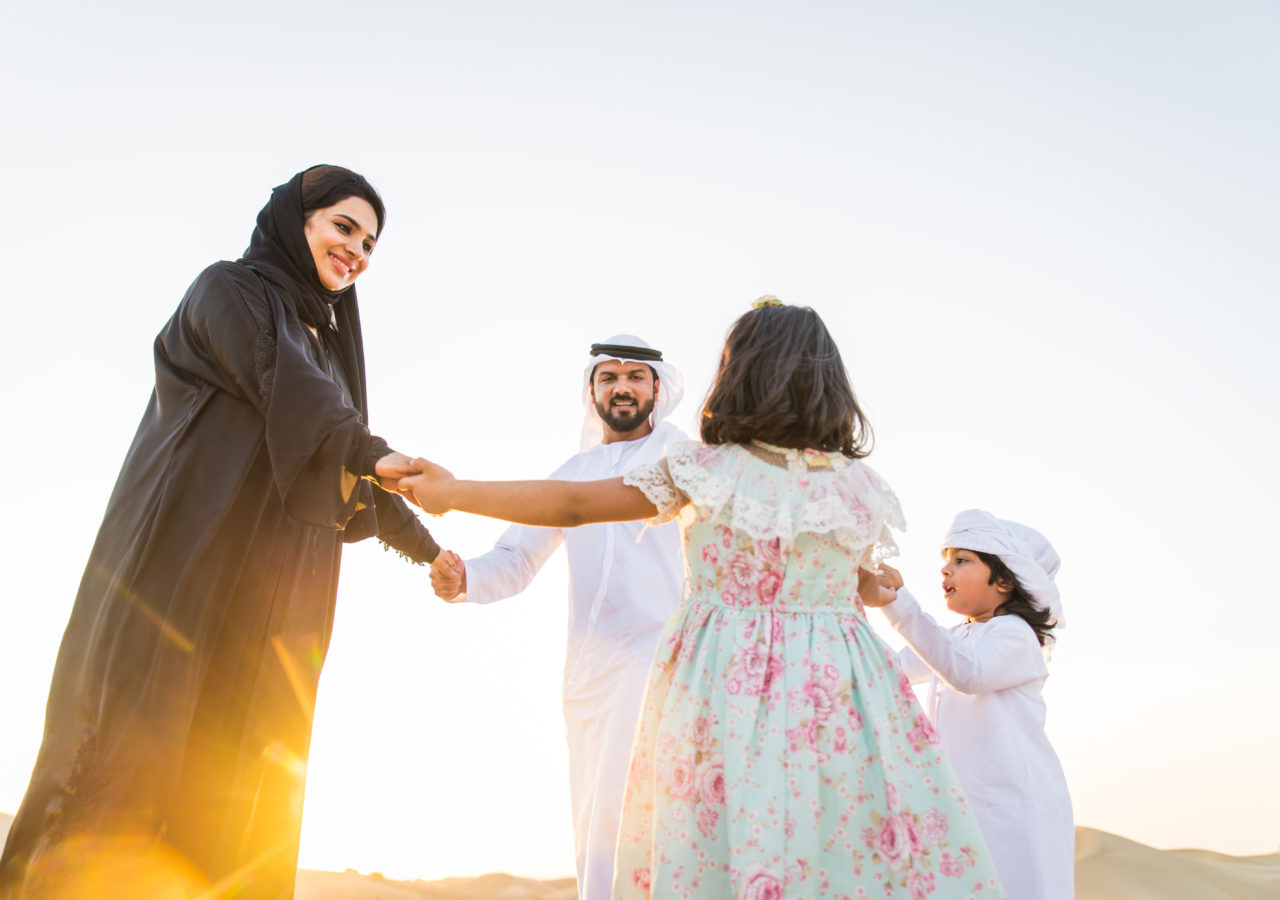One of the hardest things to accept as a parent, is that our children are not extensions of us. They are their own personalities who Allah has given various strengths, weaknesses and other weird and wonderful qualities! As a “perfectionist in recovery” (as my friend so eloquently put it in this podcast!), I have had to accept that parenting is far less stressful when I acknowledge that I don’t own my child. There are some things that are just beyond my control- her temperament, her likes and dislikes, her appetite, developmental milestones…the list goes on.
Further than this though, what has really forced me to let go of many of the expectations I so naively had of my child before she was born, is the realisation that in my relationship with her, my duties and responsibilities are still all towards Allah. In fact, this goes for any relationship and any interaction we have, but perhaps after carrying a child for 9 months and being so responsible for them, we as parents develop a sense of entitlement- to respect, obedience, love and all the other expectations that many of our own parents had of us as children.
It’s easy to fall into autopilot in our family dynamics when we don’t go back to basics and see what these relationships should look like according to Islam. We either end up repeating the dynamics that we grew up seeing and experiencing, or replicating the relationships we see around us, be it real life of in the media. That is (usually): from our children, the expectation of obedience and compliance, and from our spouses, the expectation of love, gifts, experiences or whatever love languages we each appreciate the most.
So what does Islam want our relationships to look like? Islam has set out quite specific and prescriptive duties for us when it comes to interactions with others. Just a couple of examples:
The Holy Prophet (S) said: “There is no (believing) woman who gives her husband a glass of water but it will be rewarded her better than the worship of one year during which she fasts on days and keeps vigil during the nights.”
Wasa’il-ush Shi’ah, vol. 20, p. 172
“Imam as-Sadiq (A.S.) stated: ‘One of the characteristics of the prophets of Allah is that they are all kind towards their wives’,”
Ibid, p 236
So what happens on a day when a husband has really annoyed his wife? Or a wife has done something to upset her husband? Or when your child has crossed every boundary you set for them in a day? This is where many of us fall into autopilot- our instinct is shouting at us to just ‘give them what they deserve’, and oftentimes, we do- the cold shoulder, a raised voice, some sort of punishment. But this is exactly where the difference lies between a God-centric relationship, and an ego-centric relationship. Our duties are still our duties, regardless of how the other party has treated us, because ultimately, all our duties are towards Allah and nobody else.
No doubt, this is something very, very difficult to accept and even harder to implement, but it’s possible. And since we are human- there will be slip ups and bad days, but if we are able to shift our intentions towards pleasing Allah rather than towards the person on the other side of any relationship, we can also repair and restart much better and more willingly. Of course, this doesn’t mean we don’t address things which are making us unhappy or unfulfilled in a relationship- it means we do it in a manner which is pleasing to Allah and which isn’t reactive or impulsive.
Phrases I’ve heard a lot recently, particularly when it comes to a relationship between a man and a woman are, ‘what is she/he bringing to the table?’ or ‘what are you getting out of this?’. And while these are valid questions, they shouldn’t be the first or only questions when we start to feel that our relationship isn’t exactly how we had pictured it. If these are the first things that spring to mind when we feel unhappy with our spouses, siblings, parents, whoever, then perhaps we are looking at our relationships in a very transactional way- through the lens of the society we live in; a society without God. If we want our relationships to flourish, they cannot be two-way, transactional relationships- we need to make Allah the third party and consider him a witness during our interactions.
Alhamdulillah, having been blessed with two daughters, I’ve had the opportunity to experience every emotion, question, learn, and hopefully and eventually, to grow. I’m sure many of our readers have much vaster experience than I do, but here are a few things I’ve learnt when it comes to nurturing my most treasured relationships:
1. KNOW THE RIGHTS OF OTHERS
In Imam Sajjad’s (A.S.) Treatise of Rights, he outlines the rights of various people around us- parents, children, spouses, neighbours. These are rights given to these individuals by Allah. Knowing these rights not only allows us to put Allah at the centre of our interactions, but also results in us putting less emphasis on the other party and their shortcomings, and focusing on how we can be the best parent/child/spouse we can be.
2. READ, READ, AND READ
There is a wealth of knowledge available to us about children, men, women, and their respective psychologies. It may seem over-the-top, but I have found that reading about the opposite gender and about (in my case) toddlers, has really changed the way I respond to difficult situations with my spouse and children. There is more understanding and patience. Some books that spring to mind are Men are from Mars, Women are from Venus and Calm Parents, Happy Child, amongst many.
3. MAKE ALLAH YOUR FIRST PORT OF CALL
If our child is being disrespectful, our instinct is to tell them just how disappointing they’ve been. If our spouse has done something to upset us, we most definitely want them to know the damage they’ve done. These are usually the first thoughts that come to our minds. However, what would happen if we complained to Allah first? The fury would most likely subside a little before we speak to whoever has upset us, and we are more likely to want to find solutions rather than to vent or simply guilt the other party.
There is so much more that can be said about relationships and maintaining them in an Islamic way. Suffice to say that often, we are caught up in the whirlwind of a society in which almost everything is a transaction, including relationships. We sometimes forget how sacred each and every relationship actually is because whether we acknowledge it or not, Allah is always present in every single one of them.



